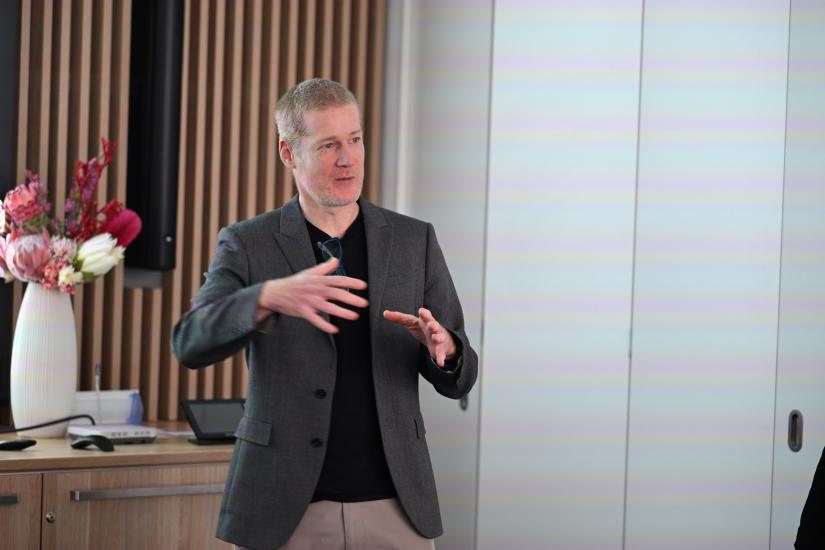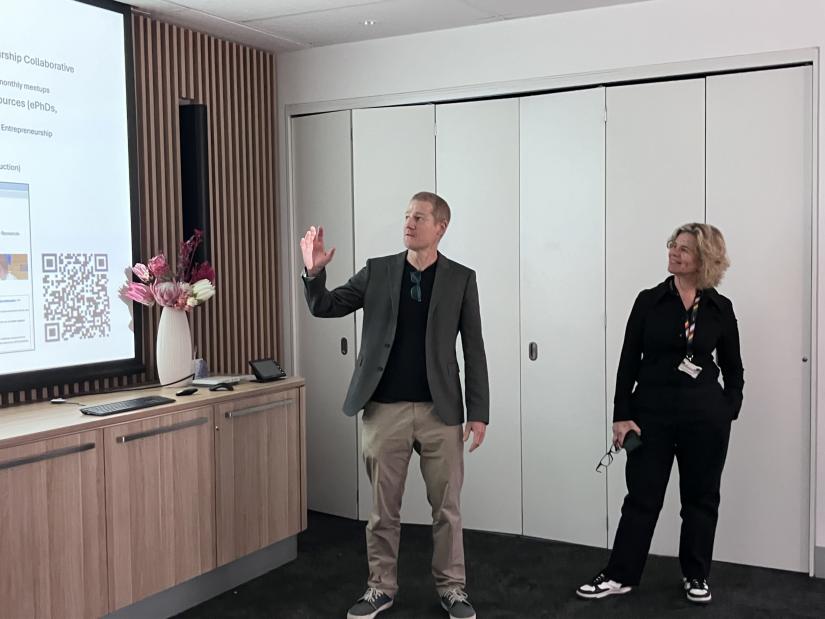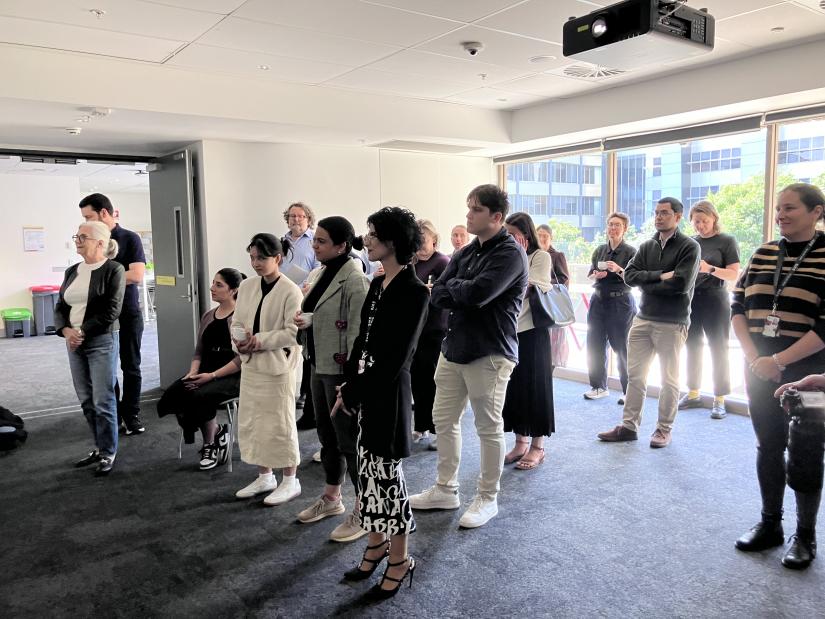A/Professor Martin Bliemel, the Director of Innovation at the UTS Transdisciplinary (TD) School, recently spoke about UTS’s new Entrepreneurial PhD (ePhD) program and introduced several participants at the Research Café.
Introducing the UTS entrepreneurial PhD

Caption
Dr. Martin Bliemel speaking at Research Cafe
“The ePhD is an innovative approach to research training that empowers founders to be evidence-led horizon-scanners who lead game-changing businesses,” explained A/Prof. Sarah Kinkel, Deputy Dean of the UTS Graduate Research School.
“Like other PhD candidates, ePhD participants conduct research at the frontiers of existing knowledge. But unlike traditional PhDs, the ePhD program is deliberately designed to support participants to use the evidence, insights, or prototypes that come out of that research in an existing venture or as the foundation of a new startup.”
A multi-award-winning researcher and educator on innovation and entrepreneurship, Martin collaborated with the Graduate Research School to develop the coursework and community for the ePhD.
“Our idea when creating this program was to instil an entrepreneurial mindset into the research journey right from the very beginning. We are making it possible for academics completing PhDs to be ready to take their ideas to the world. The skills for commercialisation are not just bolted on at the very end of their studies,” he explained.
Our idea when creating this program was to instil an entrepreneurial mindset into the research journey right from the very beginning. We are making it possible for academics completing PhDs to be ready to take their ideas to the world.
ePhD participants have access to three intensive subjects on innovation and entrepreneurship in addition to completing personalised programs of research, coursework, and professional development.
“As a cohort, they come together outside of their academic supervision for three weeks at a time to learn about the research commercialisation process,” Martin said.
What kinds of candidates pursue the ePhD?
In its first year, Martin says the ePhD program has attracted two types of candidates.
“One is the traditional PhD researcher who wants to learn how to commercialise their research. The second are experienced founders who want the benefit of a stronger evidence base, confidence in the robustness of their model, technological development, access to advanced facilities, mentorship, or recognition as an expert in their field.”


In designing the coursework and community support for this program, Martin was inspired by the work of his previous supervisor and long-term colleague Professor Elicia Maine, Associate Vice-President, Knowledge Mobilization and Innovation for Simon Fraser University and W.J. VanDusen Professor of Innovation & Entrepreneurship.
“Elicia’s multi-award-winning Invention to Innovation (i2I) program has been running a research commercialisation training program across Canada for 10 years and trained over 500 researchers across 30 universities to become translational researchers, industry champions and spinoff founders. Her team has recently raised another $23 million of funding to run it for several more years to come.”
Engage with the entrepreneurial community at UTS
While developing elements of the ePhD training, Martin and colleagues from the Innovation and Entrepreneurship Collaborative (IEC) gathered a set of online resources to support candidates and their supervisors to learn about innovation and entrepreneurship.
The group have now decided to make these learning resources available to the entire UTS community.
Our curated suite of innovation and entrepreneurship resources is continuously being updated and represents the best of this kind of coursework at UTS.
“Our curated suite of innovation and entrepreneurship resources is continuously being updated and represents the best of this kind of coursework at UTS. These resources are now online for anyone at UTS to access,” Martin said.
The IEC is a platform for cross-faculty collaboration that brings together over 30 academics and professionals from across all UTS. Collectively, the IEC’s work inspires and supports policy, startup support organisations, educators and individuals to increase productivity and create social impact.
What’s next?
- Hear from current ePhD researchers.
- Access the Canvas-based community and prototype suite of modules to learn more about entrepreneurship and research commercialisation.